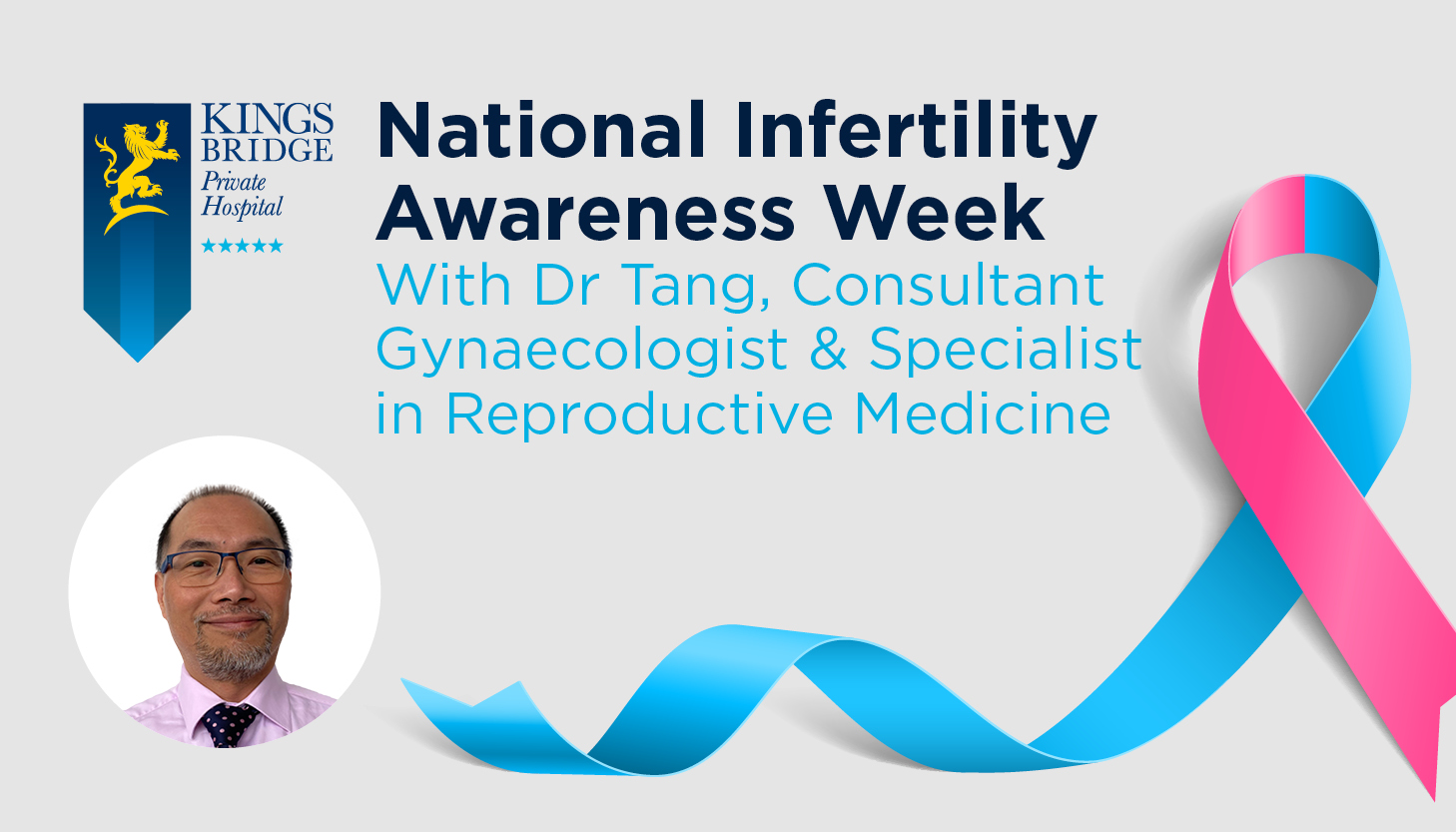How Common Is Infertility, What Are The Clinical Causes, And How Can It Impact Couples?
08th, Sep 2022

National Infertility Awareness Week (18th - 24th April) aims to spread awareness of fertility issues to a wider audience. Unfortunately, anyone can face challenges when trying to have a family. Infertility does not discriminate by race, religion, sexuality or economic status - anyone can be affected.
We took some time to speak to Dr Thomas Tang, Consultant Gynaecologist and Specialist in Reproductive Medicine to ask him some questions about how common infertility is, what exactly is unexplained infertility and when is the right time to reach out for specialist advice.
How common is Infertility in Northern Ireland?
1 in 6 couples experience some problems in achieving a pregnancy naturally. Age is the most important factor governing female fertility and the success of fertility treatment. All women are born with a fixed number of eggs in the ovaries at birth - the female body makes no new eggs after birth. As the quantity and quality of eggs declines with time, women will find it harder to conceive naturally, and unfortunately the risk of miscarriage will also increase with age.
What are the most common questions you get asked about infertility?
'What is my chance of conceiving naturally?'
Amongst women aged under 30, 8 in 10 (80%) will conceive naturally after one year of trying, with the success rate increasing to 90% after 18 months of trying. As a result of this, many women will talk to their GP if they have not become pregnant after 12 to 18 months of trying.
What are the most common clinical causes of delayed conception (infertility)?
The most common clinical causes of delayed conception (infertility) are:
- Not ovulating (releasing an egg) regularly, which can sometimes be caused by polycystic ovary syndrome
- Sexually-transmitted diseases, such as Chlamydia, causing damage to the Fallopian tube(s). Chlamydia can also affect male fertility.
- Endometriosis
- Male factors (men with a poor quality/quantity of semen).
What is ‘unexplained infertility’ and how common is it?
‘Unexplained infertility’ is a term used if none of the common causes (listed above) have been found in the investigations carried out. This is the outcome in about one fifth of cases.
How can a couple increase their chances of conceiving naturally?
Recent research has shown that delaying trying to start a family and also unhealthy lifestyles are significant contributing factors that affect a couple’s prospects of having a family. Being overweight, not taking enough exercise, smoking, drinking too much alcohol, and use of recreational drugs or anabolic steroids are well recognised factors affecting both male and female fertility.
Weight is a serious issue in the UK today, with nearly one third of women in the UK age between 20 and 50 are classified as obese with BMI over 30kg/m2. It has been known for many years that obese pregnant women are more likely to have problems during their pregnancy and a poorer outcome at the end of it compared to women who have a healthy body weight. Problems can include the following.
- Twice the risk of having a baby with spina bifida (neural tube defect)
- 2 or three times greater risk of developing high blood pressure in pregnancy
- 2 or three times greater risk of developing diabetes, which further causes more pregnancy complications
Many large studies across the world have shown that overweight women who manage to lose weight before they start trying to get pregnant have a much greater chance of getting pregnant and also of all going well. As a result, international guidelines recommend weight loss should be the first thing to try for obese women before they start fertility treatment or when planning a family.
When should a woman see her doctor about infertility testing?
Many women will talk to their GP if they have not become pregnant after 12 to 18 months of trying. All GPs have regional and national guidelines that set out what investigations should be carried out first for the couple, and also when to refer them on for more specialist treatment.
Sometimes the GP will make an earlier referral for specialist care, such as when a woman is over 35 OR if she has had particular health problems, such as pelvic infection, endometriosis or irregular/infrequent periods. Likewise, men who have had certain health issues such as surgery/injury to the testes, cancer treatment or diabetes should see their GP. The GP will be able to refer them for investigations, which will include semen analysis.
What questions should a couple ask their doctor about treatment options?
Couples may want to discuss the following with their doctor in relation to any treatment options on offer:
- How successful is the treatment likely to be?
- Are there any side effects and potential complications associated with the treatment?
- What are the chances of multiple pregnancy - including twins/
- How long is the waiting time for treatment?
- How long does the treatment take?
- What is the current criteria for NHS funding?
- What about Covid 19 and treatment?
What is the impact of infertility on the couple?
There is a lot of evidence that infertility can have a very negative effect on mental well-being. While the couples perhaps understandably focus on the physical causes of infertility, its psychological impact is often overlooked, which can include anxiety and depression.
Although research suggests that a higher proportion of women than men say that struggling to start a family is the worst experience in their life, the reality of infertility is hard on both men and women. It can lead to low self-esteem and a sense of having no control in the face of such uncertainty.
Some people experience isolation because they feel a need to avoiding social interaction with friends and family members who are pregnant or have children, and in some cases this can also lead to anxiety-related sexual dysfunction and marital disharmony.
Dr Tang recently began his private fertility practice within our Kingsbridge Holywood Clinic. For further information, please click here.
To book an appointment with Dr Tang, please call 028 9066 7878, email info@kingsbridgeprivatehospital.com or visit our Online Booking Portal.
Sources:
National Infertility Awareness Week - Get Involved
Recent Articles

